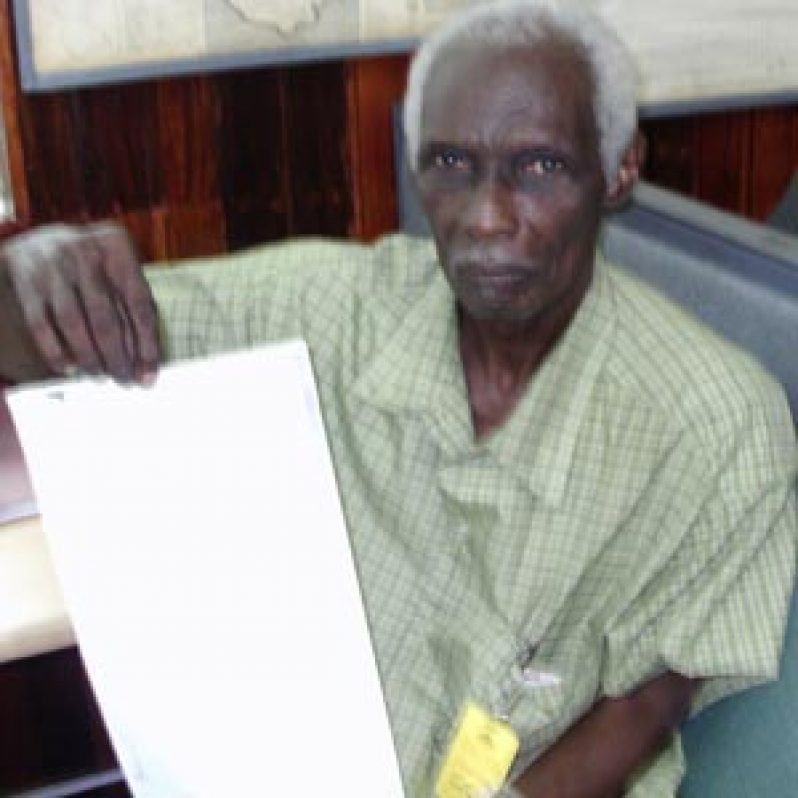CIRCA 1924, the Jordanite Church in Guyana, the West Evangelist Millennium Pilgrims (WEMP), acquired one hundred acres of land on the left bank of the Demerara River, twenty-seven miles south of Linden, and about ten miles south of the Amerindian Village of Muritaro.
The leader of the Church at the time, Bishop James Klien, named the land Zion Hill. Aside from their base at Agricola, on the East Bank Demerara, the Jordanites lived at Zion Hill, where they worshipped and engaged in economic activities such as farming, making charcoal, and harvesting wallaba poles for sale to the then bauxite company at Mackenzie (now Linden).
When Bishop James Klien died in 1972, his son, David, tried to keep the Church members interested in the settlement at Zion Hill, but Klien’s successor, Elder Ferdinand Furry, decided that the land was not worth the effort. As such, Elder Furry returned the transport to the Government of Guyana.
After a few years, the only Jordanite remaining at Zion Hill was David’s grandmother, Florence Sampson. Her remains are buried there.
In October 1983, David decided to return to Zion Hill. He managed to acquire the land via prescriptive rights, and then secured a valuation for the property.
In 2007, Zion Hill was officially valued at G$750M. The current market value is over G$1B.
David, the owner and sole administrator of Zion Hill, is now looking for partners to help develop this valuable legacy of his father, the late Bishop James Klien, and the WEMP.
 The intriguing story of Zion Hill; its return to Government and subsequent return to the son of James Klien, as well as its numerous possibilities for economic ventures, was narrated last week by David.
The intriguing story of Zion Hill; its return to Government and subsequent return to the son of James Klien, as well as its numerous possibilities for economic ventures, was narrated last week by David.
Now 76, David Klien had, two weeks ago, stumbled upon an article published in the popular Sunday Pepperpot column ‘Tales from way Back When’, which recounted the death of his father in June 1970, and which was published in August last.
He read it and decided to visit the Chronicle and speak of memories of his father and of Zion Hill.
He recounted: “I was born a Jordanite. My father, as Bishop of the WEMP, had applied to the Colonial Administration for the land. They subsequently called him in to their office at what was then Christianburg (now Wismar), (and gave him) the transport for the property in the name of the WEMP.
“Myself and my four other siblings were born at Zion Hill. We lived there with dad and our mother, Lucille, for most of our lives, until my father died. We lived among the Amerindians. I attended school at nearby Muritaro, then Butabu. My little-boy days at Zion Hill was very nice. I liked to eat cassava and farine, and to drink a daily mixture of cane juice and milk.
“There were two creeks at Zion Hill. We swam in them (and) hunted fishes. We had many coconut trees at Zion Hill, planted by members of the Church. Some of them had nuts which would contain more than three pints of coconut water. You could hardly drink out one of those coconuts. We only visited Agricola during school holidays.”
Over the years, David had maintained an interest in Zion Hill. He has formed a company named Tropical Snowbird, and is hoping to attract a partner who can help him to exploit the resources of the 100-acre plot.
Ventures he has in mind include large-scale cassava farming, logging, large-scale sugar cane farming, and eco-tourism.
“The Demerara River is still beautiful, still unspoilt, and people have told me that I can set up some log cabins at Zion Hill and attract tourists as an economic venture,” he said.
But the land has first to be cleared. He is, however, of the view that with God, all things are possible. His main source of motivation is Psalm 87 King James Version (KJV), which reads as follows:
“His foundation is in the holy mountains. The LORD loveth the gates of Zion more than all the dwellings of Jacob. Glorious things are spoken of thee, O city of God. Selah. I will make mention of Rahab and Babylon to them that know me: behold Philistia, and Tyre, with Ethiopia; this man was born there. And of Zion it shall be said, this and that man was born in her: and the Highest Himself shall establish her. The LORD shall count, when He writeth up the people, that this man was born there. Selah. As well the singers as the players on instruments shall be there: all my springs are in thee”
(Clifford Stanley can be reached to discuss any of the foregoing articles at cliffantony@gmail.com, or on cell phone # 657-2043)



.jpg)










